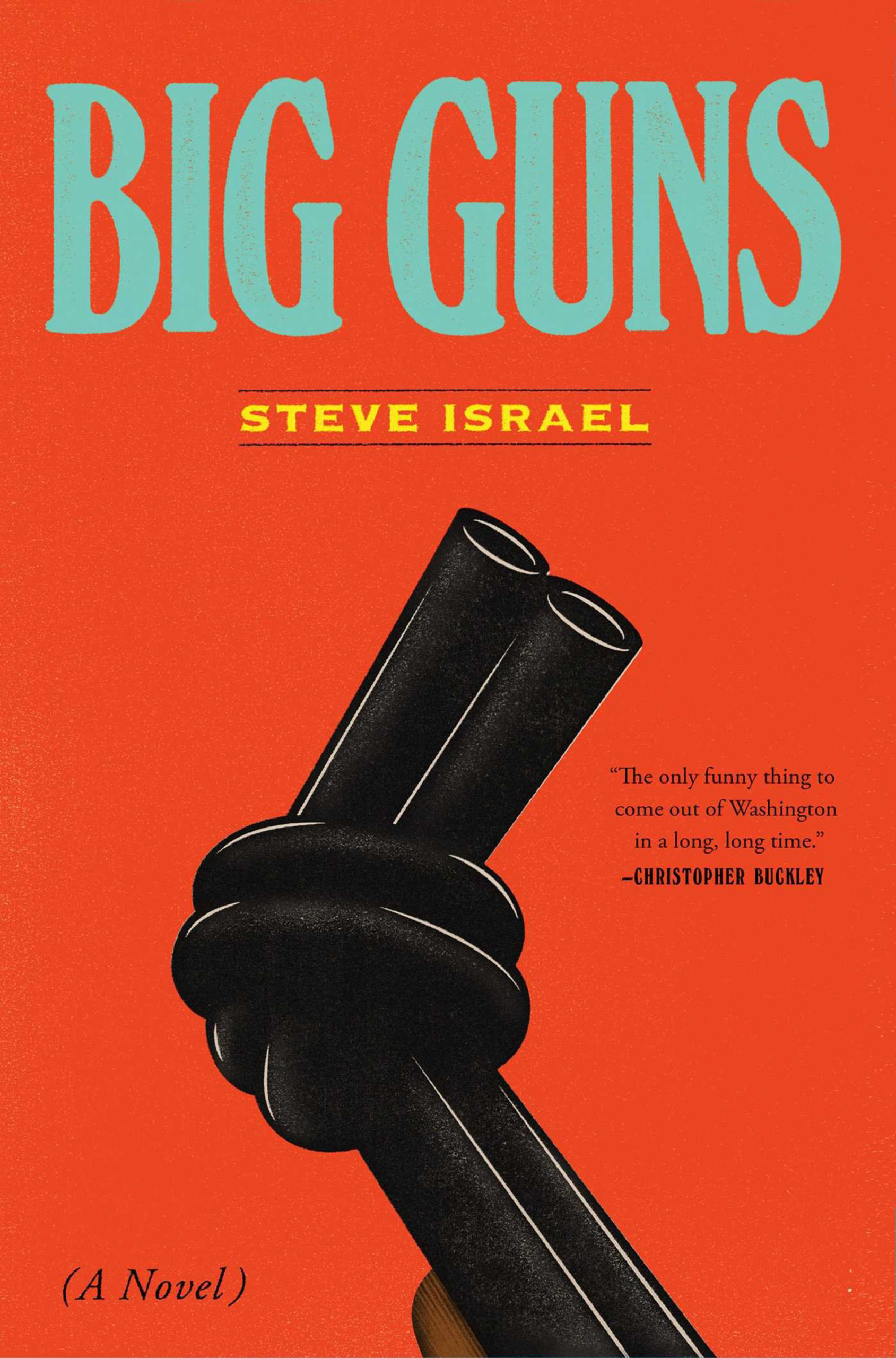Former Congressman Israel Brings Out Big Guns

His book is entertaining and irreverent, with East End resonance
In a recent interview, shortly after the Parkland shooting and referencing Sandy Hook and other similar horrors, 16-year former Long Island Congressman Steve Israel noted that a small city in Georgia had passed an ordinance mandating gun ownership.
In fact, Nelson, GA is one of five towns in the country that passed compulsory gun ownership laws — statements of principles, it would seem, more than enforceable or enforced legislation. Yes, the gun lobby pours lots of money into its cause, but it’s the “intensity” of gun supporters that disturbs Israel the most. The President and Congress, he contends, fear the gun lobby more than gun violence.
In a New York Times Op-Ed last fall in the wake of the Las Vegas massacre, a piece Israel called “Nothing Will Change,” he wrote that voters opposed to National Rifle Association policies failed to harness “savvy” and “strategy.” He has now chosen a different tack — a comedic work of fiction, his second political send-up after The Global War on Morris (2014), about Washington’s bungling the war on terrorism. Don’t rule out Israel’s mocking of the Left (hard-boiled veterans of soft causes, among them CLUC — Chicken Liberation United Committee), but for sure it’s the firearms-loving, Jesus-God invoking Alt Right that’s his main target.
Big Guns is entertaining and irreverent, with lots of East End resonance. It opens in Asabogue (right!), a village in between Southampton and East Hampton that includes the summer residences of the rich, famous, and infamous on Billionaires Bluff, as well as historic and lower-income dwellings. The action gets underway courtesy of Asabogue’s mayor, 72-year-old, bike-riding Lois Leibowitz, her ACLU bag flapping in the wind, a force of nature who wants Asabogue to join Chicago’s beleaguered mayor and ban handguns.
It’s only a short matter of time before Asabogue’s big money, well-connected political captains of industry and their powerful compatriots on The Hill and in the media push back. They’re managed by a brilliant, cynical political lobbyist who will press for the passage of AFFA — American Freedom from Fear Act — requiring every individual over the age of nine to own a gun. (The acronyms in the book are a riot.) But wait: the ruthless lobbyist is Sunny McCarthy (née Sunshine Leibowitz), a Washington whiz who’s estranged from her mother and, it would appear, from ethics and morality as well.
The big question about Big Guns, however, is this: Can it be effective, and what does “effective” mean? Satire, parody, lampoon, farce — all related genre — differ, satire being the sharpest mode of savaging flaws and vices and implicitly calling for reform. Big Guns is not satire. Nor is it farce, though the plot involves exaggeration, stereotypes, and shtick. The problem is — as stand-up comedians well know — how to address real-life lunacy that already seems satiric. It’s now 16 years since Michael Moore’s provocative anti-gun documentary, Bowling for Columbine, and just weeks after Education Secretary Betsy DeVos’s recent declaration that she was looking at federal grants to arm staff and teachers in schools.
The Asabogue police chief points out that there are 3.25 million Americans, and 300 million guns: “Random violence is coming to a theater near you. Or a mall, a school, maybe where you work.” One of the villains of the book, a Charlton Heston mini-me, the chairman of American Gun Owners Defense (AGOD), throws his own money and everyone else’s at the NRA. He suffers an ironic fate toward the end of this wacky tale but not before he spends plenty to achieve his goal: “Instead of passing laws taking our guns away, pass laws giving them out. Everyone gets a gun. Annie gets a gun. Andy gets a gun. Two cars in every garage and a gun in every pot.”
Let it be said that Israel can also deliver some lovely lyrical passages, especially nostalgic ones about days gone by when screen doors would squeak open and clack closed, when one heard “the rhythmic groaning of metal rockers; the eruptions of laughter up and down the block,” days when “neighbors gathered on porches. Before neighborhoods became communities and communities became gated.”
Not insignificant — let it also be noted that Big Guns is dedicated to Col. William C. Church and Gen. George Wingate, founders of the NRA. “If they only knew then . . . ” Israel adds. What he means is that the organization, started in 1871 by Union officers to improve the disastrous lack of marksmanship on the part of recruits in the Civil War, has certainly shifted its purpose. What he likes to believe is that the founders would likely be critical of the evolved direction. And what he implicitly urges is for readers to make their voices heard at the polls.




